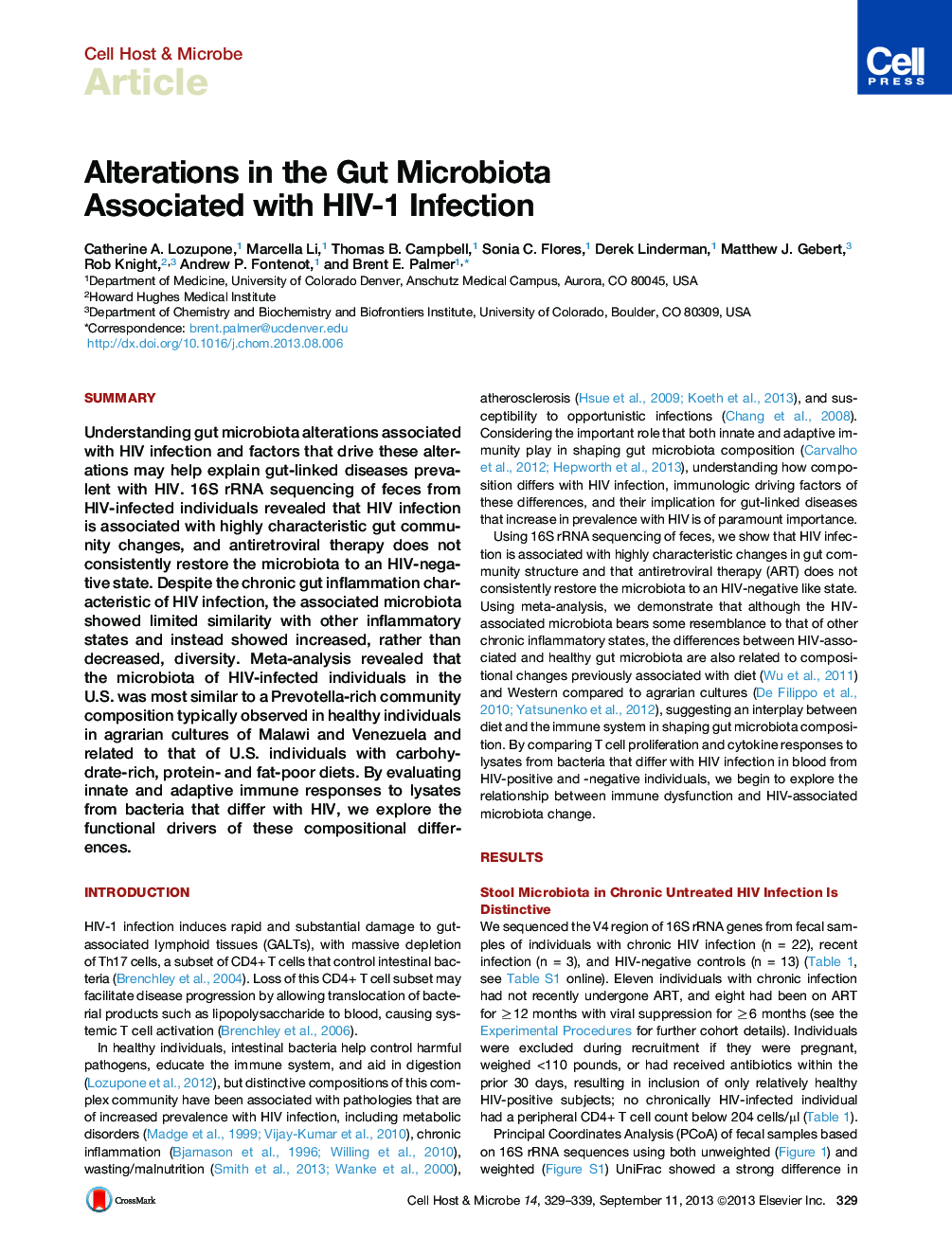| Article ID | Journal | Published Year | Pages | File Type |
|---|---|---|---|---|
| 4361108 | Cell Host & Microbe | 2013 | 11 Pages |
•U.S. adults with chronic HIV infection have highly characteristic gut microbiota•Antiretroviral therapy does not always restore gut microbiota to a healthy state•Microbiota in HIV infection and with animal fat-/protein-poor diets are similar•CD4+ T cell response to Bacteroides species preferentially depleted with infection
SummaryUnderstanding gut microbiota alterations associated with HIV infection and factors that drive these alterations may help explain gut-linked diseases prevalent with HIV. 16S rRNA sequencing of feces from HIV-infected individuals revealed that HIV infection is associated with highly characteristic gut community changes, and antiretroviral therapy does not consistently restore the microbiota to an HIV-negative state. Despite the chronic gut inflammation characteristic of HIV infection, the associated microbiota showed limited similarity with other inflammatory states and instead showed increased, rather than decreased, diversity. Meta-analysis revealed that the microbiota of HIV-infected individuals in the U.S. was most similar to a Prevotella-rich community composition typically observed in healthy individuals in agrarian cultures of Malawi and Venezuela and related to that of U.S. individuals with carbohydrate-rich, protein- and fat-poor diets. By evaluating innate and adaptive immune responses to lysates from bacteria that differ with HIV, we explore the functional drivers of these compositional differences.
